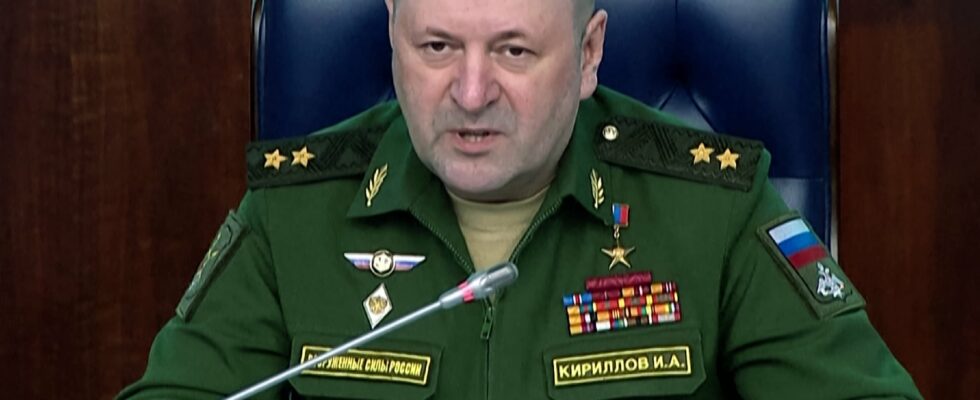Moscow. Tuesday December 17. Two bodies in front of a ruined residential building. Blood on a thin layer of snow. It was 6:12 a.m. when an explosion rang out in the Russian capital, killing two men. One of them was the general and commander of the Russian radionuclear, chemical and biological defense forces, Igor Kirillov. The second, his assistant. A split second later, only broken glass and debris littered the ground. “An unprecedented crime”, for the Moscow economic daily Kommersant.
After the death of Igor Kirillov, the most senior Russian military official killed in Moscow since the start of the war in Ukraine, the international press did not fail to react. For the british daily The Guardianthere is no doubt: this assassination is intended to “sow panic and fear among senior officials in the Kremlin and the army.” Still in the United Kingdom, The Telegraphhe sees it as a “humiliation of Putin by Ukraine”.
“A daring assassination”
The Internal Security Service of Ukraine (SBU) claimed responsibility for the assassination. “Kirillov was a war criminal and a perfectly legitimate target,” an SBU official told Ukrainian online newspaper Ukrayinska Pravda. “It is striking how elaborate the operation was,” comments the BBC. According to a first hypothesis, a scooter loaded with explosives would have been placed in front of the residential building around 4 a.m. The device would then have been triggered remotely using a cell phone or a radio signal. An assassination described as “audacious” by the Californian daily Los Angeles Times.
For The Telegraph, the modus operandi is not surprising: “bombs hidden under cars, in scooters and in busts are the favorite tools of Ukrainian assassins”, writes the daily in reference to the death of Vladlen Tatarsky. In April 2023, the Russian pro-war blogger was meeting with supporters in a St. Petersburg cafe when a purported art student, Darya Trepova, approached him, offering him a sculpture of the bust of a soldier. A few minutes later, the statue exploded, killing the influencer. Since then, there have been numerous attacks on senior Kremlin officials. Until Igor Kirillov.
“Assassination of Russian general reinforces SBU’s reputation for brutal revenge,” headline The Guardian. Twenty-four hours before the explosion, Ukraine labeled Igor Kirillov a war criminal for approving the use of tear gas and other banned chemical weapons against Ukrainian forces. According to the SBU, more than 2,000 soldiers were admitted to hospitals following the poisonings. An observation which earned Igor Kirillov “a place on the list of people to be killed” according to The Telegraph. Since March 2022, the military has increased public interventions, accusing kyiv and Washington of forming an “army of migratory birds, mosquitoes and bats” to spread the dengue virus, Zika fever and yellow fever. within the Russian ranks.
The end of hopes for peace?
“Will this new assassination attempt exacerbate the Kremlin’s paranoia and compromise hopes for winter peace negotiations?”, asks The Telegraph. According to the BBC, analysts have a strong opinion on the issue. According to them, “both camps are trying to inflict hard blows on each other in order to obtain maximum influence in the upcoming negotiations.” And Moscow’s response could be immediate. Deputy head of the Kremlin Security Council Dmitry Medvedev vowed there would be “imminent retaliation against high-ranking Ukrainian figures”, the report says. Los Angeles Times.
An outbreak of violence criticized by Russian military influencers. Rybar, a Telegram channel with 1.3 million subscribers, spoke out on the subject, deploring the worrying morale of the troops. “No matter how successful we are on the battlefield, no matter how euphoric we may be, and no matter how much we talk about taking the initiative, the other side always has the opportunity to sting us painfully.” , can we read on the social network. But for The Telegraphpeace talks will not be imminent. “The death of an additional soldier, or even of a high-ranking general assassinated, hardly seems to matter,” writes the British daily. Regardless, for the BBC, the message is clear: “Even inside Moscow, Russian generals cannot feel safe.”
